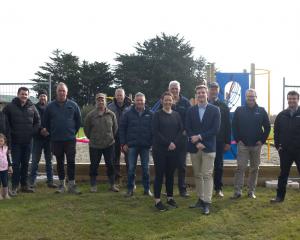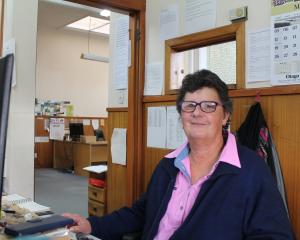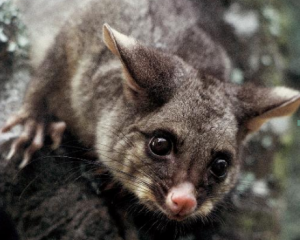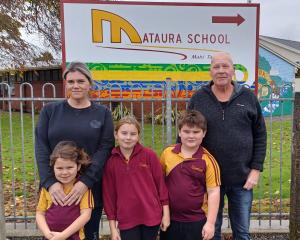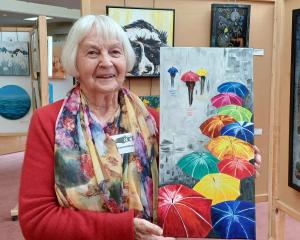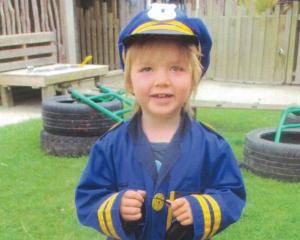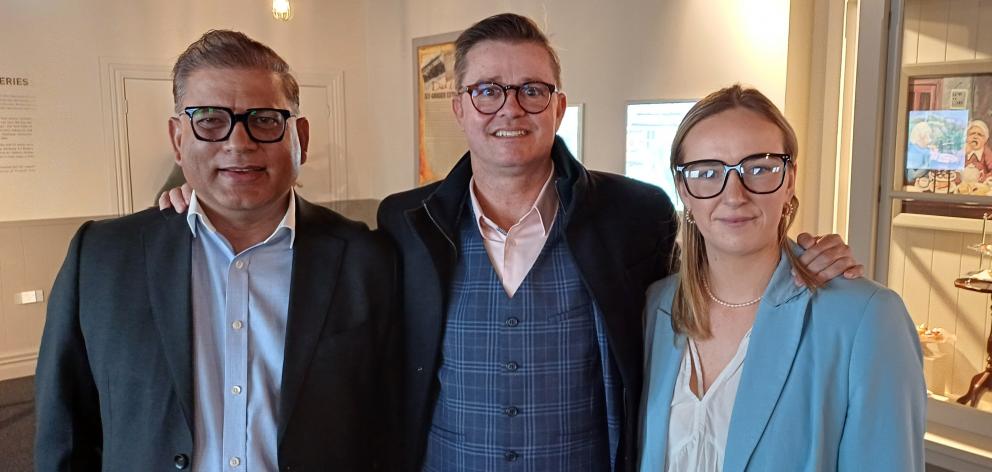
Gore Health and Hokonui Locality hosted the eMental Health International Collaborative (eMHIC) roundtable.
The roundtable members included eMHIC executive director Prof Anil Thapliyal of Auckland, Apec Digital Health scientific director Prof Andy Greenshaw, of the University of Alberta, Canada, Kids Help Phone Canada chief executive Kathy Hay, Victoria University senior lecturer Dr Simon McCallum and Headlight Trust founder Anna Dorsey, of Queenstown.
Gore Health chief executive Karl Metzler said it was "an enormous coup" for Gore to host the roundtable when it was usually hosted in cities such as Auckland, Wellington, Sydney and Adelaide.
"I’m absolutely chuffed we managed to bring the calibre of speakers to Gore.
"If we can have Six60 we can have an international mental health roundtable."
eMHIC was considered the "niche international think-tank on all things digital and mental health".
Prof Andy Greenshaw, Dr McCallum and Ms Hay were leaders in the field, Mr Metzler said.
He had a long-standing friendship with Prof Thapliyal.
The pair shared a "passion" for not only Southland but "people’s mental wellbeing and the wellbeing of our community".
"He wants to give us all the tools he can to alleviate people’s mental suffering.
"There’s nothing more noble."
Ms Hay said her organisation provided a digital service where young people could share what they were struggling with.
"Kids can get support however they need, wherever they are, 24/7.
"We’re free, we have no judgement and so young people come to us and we can help them."
Since about 2020, when the Covid-19 pandemic affected communities, her organisation had connected with young people 20 million times.
"Mental health is in crisis in Canada and globally."
She had personal evidence that the service worked because a family member had been greatly helped by it.
"It’s the reason why I am tenacious."
Young people were engaged in the technical world and that was one way to help them with their mental health struggles, Ms Hay said.
It could be argued technology added to young people’s stress, especially via social media.
"The thing is, they are using technology, so we have to be there.
"We are at least there as a solution that’s good."
While she was at the roundtable to talk about the work of Kids Help Phone, she was also there to learn.
"You folks are doing things that other countries aren’t and you’re willing to go to the edge, you’re willing to go where young people are."
Hokonui Locality manager Ceri MacLeod said while the roundtable members were sharing their expertise, they were also interested in learning about the needs of a rural community.
"So it’s quite exciting for us to think about what can we learn and bring into the community."
Prof Thapliyal said he had found Gore to be the "most amazing community", which was why he was keen to hold the roundtable in the town.
One of its strengths was the calibre of its leaders, including people like Mr Metzler, Mrs MacLeod and former Gore district mayor Tracy Hicks, he said.
"They are anchors of the community, and once you have right leaders the right things happen."
While people’s mental health needs were "enormous", access to care was limited and the stigma of having a mental health problem meant people were reluctant to ask for help.
The focus of the roundtable members was how technology could help people with mental health issues, Prof Thapliyal said.

